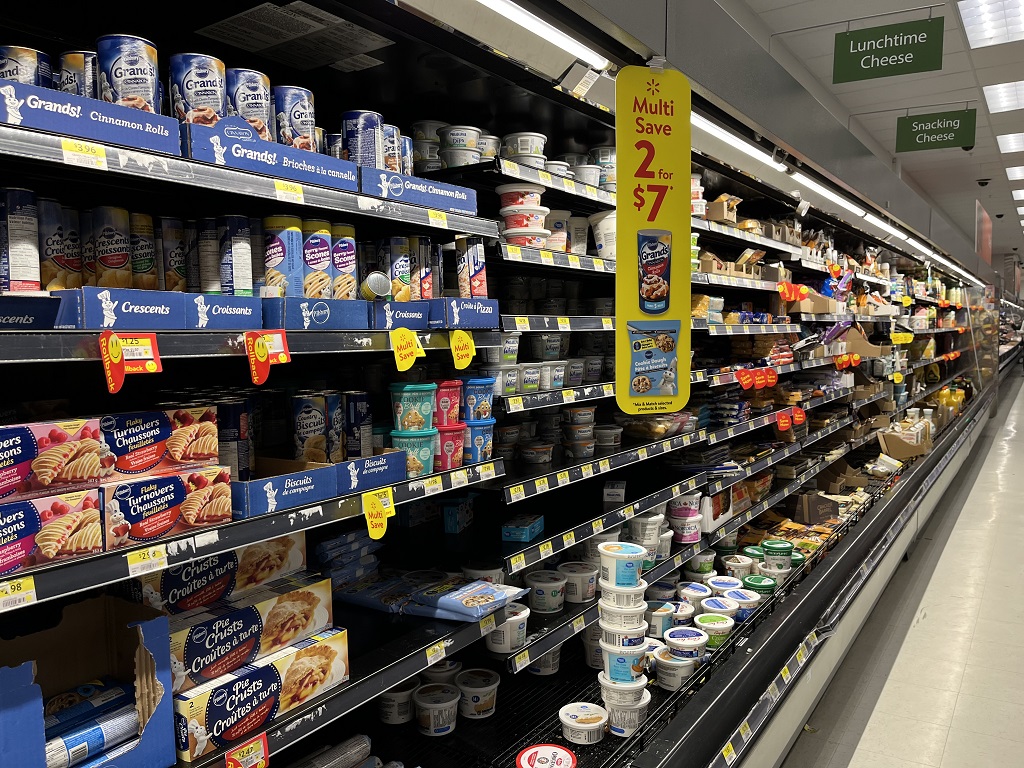Grocery shopping in Canada and preparing food on a budget as a newcomer can be tough at first.
To help students navigate these challenges, the International Education Centre and Health Services created Food for Thought: Grocery Shopping and Eating Well in Canada.
The webinar provides students with information and resources which show where to find the best deals at grocery stores, cheap recipe ideas and how to maintain proper nutrition on a budget.
“The IEC started running this event last semester, as we recognize how challenging it is for newcomers to any country to figure out the tips, tricks and cultural nuances of grocery shopping on a budget,” said intercultural programming support officer, Kaitlyn Poisson.
“Understanding the basics of nutrition is essential in helping us make good choices at grocery stores and while preparing food,” said Poisson, who welcomed Caprise Perrineau, health promotion and education co-ordinator, to talk about the fundamentals of a balanced diet.
According to the webinar, the least expensive grocery stores in Canada are Walmart, No Frills, Food Basics and FreshCo. They offer great variety for the cheapest price. Some also have small sections of halal, kosher and vegan products.
Specialty stores, such as Dollarama and Bulk Barn, don’t offer as much variety as grocery stores, but they are cheaper.
“Sometimes you pay for convenience,” said Poisson.
If you have a bigger budget, stores such as Loblaws, Real Canadian Superstore, Metro and Independent offer good quality products and variety.
A good idea when shopping on a budget is to prepare meals for the week. Planning out your meals beforehand can save you money, because it makes you less likely to purchase things spontaneously. Make a list before going to the store and keep an eye on the best deals.
“I have started choosing protein based on what is on sale at the grocery store,” said Poisson. “If fish is on sale, I’ll buy it and put it in the meal. If chicken is on sale, I’ll buy that. If it’s a really good price, I buy a few and then I put them in the freezer.”
There are stores which offer pre-made meals, such as Farm Boy and Whole Foods, but they can be more expensive.
You can find coupons for grocery stores in the mail and in online apps such as Flipp, Save.ca, Swagbucks, Reebee, Caddle, Checkout 51, Flashfood and SaveaLoonie.
Stores also offer students a 10 per cent discount on certain days (usually on Tuesdays). Students may be required to show some form of school identification.
If you’re trying to eat healthier, always look at the nutrition facts in the products you buy. UnlockFood.Ca is a great resource when it comes to understanding food labels in Canada.
“When it comes to food, what is considered healthy or unhealthy is just a label that you’re putting on a food . . . ” said Perrineau. “Ensure that you’re getting enough food to eat, that you are satiated, so that your brain is functioning and you’re able to focus on your classes.”
For those struggling to get enough food, Poisson and Perrineau encourage students to reach out to them.
“We have a team here at Algonquin that will be able to support you,” said Perrineau.
Students are also welcomed to go to AC’s food cupboard. It was created by the Students’ Association in December 2014 to support students in need of food and necessities.


